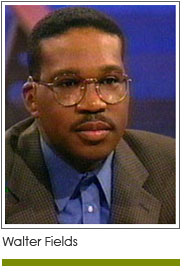 As we approach the coming national holiday celebrating the birthday of Rev. Dr. Martin Luther King, Jr., , my thoughts return to the efforts over two decades ago to secure the honor for the slain civil rights leader and Nobel Peace Prize winner. Immediately after Dr. King’s assassination, Rep. John Conyers of Michigan introduced legislation calling for Congress to establish King’s birthday as a national holiday. Lending support in a significant way was legendary recording artist Stevie Wonder. The world-renowned entertainer penned “Happy Birthday” on his Hotter than July album as a signature song for the campaign to create the King national holiday. I vividly remember standing on the frozen streets of the nation’s capital on a blustery and snowy winter day during a march Wonder led in support of the Conyers legislation.
As we approach the coming national holiday celebrating the birthday of Rev. Dr. Martin Luther King, Jr., , my thoughts return to the efforts over two decades ago to secure the honor for the slain civil rights leader and Nobel Peace Prize winner. Immediately after Dr. King’s assassination, Rep. John Conyers of Michigan introduced legislation calling for Congress to establish King’s birthday as a national holiday. Lending support in a significant way was legendary recording artist Stevie Wonder. The world-renowned entertainer penned “Happy Birthday” on his Hotter than July album as a signature song for the campaign to create the King national holiday. I vividly remember standing on the frozen streets of the nation’s capital on a blustery and snowy winter day during a march Wonder led in support of the Conyers legislation.
One of the primary concerns among the many people who supported the King Holiday was that it would not succumb to the commercialization of other national holidays, namely the birthdays of U.S. presidents. The birthdays of George Washington and Abraham Lincoln had become a convenient excuse for retail sales and even Memorial Day, celebrating the sacrifices of American soldiers, had lost much of its meaning on a public that used the day to cookout. The thought behind Martin Luther King Day was that it would present an opportunity for the nation to pause and reflect on Dr. King’s teachings and rededicate itself to the principles the civil rights leader espoused. In the early years of the King celebration some of the expectations of the holiday were met, with many communities embracing the day as a “teaching moment.” Unfortunately, with the passage of time, the day has taken on some of the irrelevance of other national holidays and it is a loss for all of us.
I have written in the past that the King Holiday has become an opportunity for many whites to soothe their conscience and for many Blacks to be passive participants in social change. Dr. King’s most famous oratory, his “I Have a Dream” speech delivered at the 1963 March on Washington, is the central theme of thousands of programs across the country on Martin Luther King Day but recited out of context and without any connection to his perspective at the end of his life. For twenty-four years, we have celebrated Dr. King’s birthday while ostensibly ignoring the central tenets of his teachings and avoiding the primary issues of his political-economic thesis that was the centerpiece of his final book, Where Do We Go From Here: Chaos or Community? We invest so much in symbolic sentimentality on the King national holiday that the message of the man has become watered down and minimized in a collective “We Shall Overcome” moment. We cannot overcome what we are unwilling to confront.
While all Americans should find meaning in the national holiday celebrating Dr. King, it is a day that Black Americans should take responsibility to uphold its purpose. After all, it was the struggle for Blacks rights as American citizens during Jim Crow that was the focus of King’s leadership and allowed him to extend his advocacy to a broader human rights agenda. His life experiences were that of the African American struggle and his advocacy was an extension of the work of predecessors such as Sojourner Truth, Harriet Tubman and Frederick Douglass. For many reasons, Blacks must look inward for the reasons why the work of this iconic figure has become trivialized and misappropriated. The Black community is negligent in its failure to claim King Day and give it its proper due.
This King Day I am hopeful that we will use the holiday to return to the source – the teachings and work of Dr. King. Rather than listening to rambling speeches and recitations, what would be more meaningful is an examination of his last published work. In it, Dr. King prophetically framed a human rights agenda that challenged the structural inequities that drive poverty and exploited human capital. We need to return to Dr. King’s last published words with a fanatical zeal and recommit and rededicate ourselves to continuing the struggle to improve the human condition. This is no ordinary birthday because it honors an extraordinary man, someone who commanded rough waters with oars of faith and guided his people through the turbulence of storms seen and unforeseen. The least Black Americans can do is to tell the story of Dr. Martin Luther King Jr. and to get it right.














